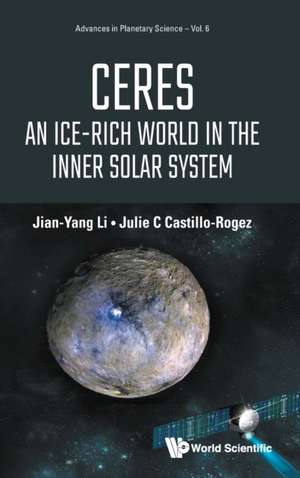CERES: Advances in Planetary Science
Autor Julie C Castillo-Rogez Jian-Yang Lien Limba Engleză Hardback – 17 ian 2022
Preț: 568.50 lei
Preț vechi: 738.32 lei
-23% Nou
Puncte Express: 853
Preț estimativ în valută:
108.78€ • 118.64$ • 91.73£
108.78€ • 118.64$ • 91.73£
Carte disponibilă
Livrare economică 03-17 aprilie
Livrare express 19-25 martie pentru 31.82 lei
Preluare comenzi: 021 569.72.76
Specificații
ISBN-13: 9789811238147
ISBN-10: 9811238146
Pagini: 256
Dimensiuni: 157 x 235 x 18 mm
Greutate: 0.53 kg
Editura: World Scientific
Seria Advances in Planetary Science
ISBN-10: 9811238146
Pagini: 256
Dimensiuni: 157 x 235 x 18 mm
Greutate: 0.53 kg
Editura: World Scientific
Seria Advances in Planetary Science
Descriere
Thanks to NASA's Dawn mission, the last half-decade has witnessed a significant advance in our understanding of Ceres.
